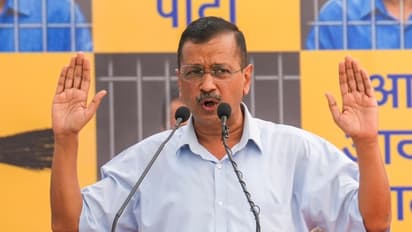Arvind Kejriwal to walk out of jail: What are the conditions set by Supreme Court while granting bail?
Published : Sep 13, 2024, 01:35 PM IST
Delhi Chief Minister Arvind Kejriwal has been granted bail by the Supreme Court in the CBI case related to the excise policy case. The bail comes with certain conditions, including restrictions on public statements and access to his office.
Stay updated with the Breaking News Today and Latest News from across India and around the world. Get real-time updates, in-depth analysis, and comprehensive coverage of India News, World News, Indian Defence News, Kerala News, and Karnataka News. From politics to current affairs, follow every major story as it unfolds. Get real-time updates from IMD on major cities weather forecasts, including Rain alerts, Cyclone warnings, and temperature trends. Download the Asianet News Official App from the Android Play Store and iPhone App Store for accurate and timely news updates anytime, anywhere.
Read more Photos on
